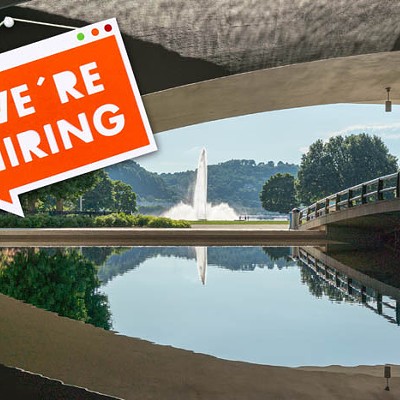Friends, Pittsburghers, Democratic committeemen, lend me your ears. I come not to praise Mayor Luke Ravenstahl. Or to bury him. Although the latter option is tempting.
In fact, there was plenty of jubilation among Ravenstahl's critics last week, after his March 1 announcement that he would not seek re-election, due to the "grueling demands of this office." But it's too early to say what Ravenstahl's legacy will be. He's got 10 months left before his term expires, and an ongoing federal investigation into the police bureau may turn up surprises ... including the possibility that, whatever doubters believe, Ravenstahl didn't do anything wrong.
Unfortunately for Ravenstahl, he's already been caught up in the kind of scandal that gets the most attention — the kind voters can imagine being involved in themselves. A series of financial transactions involving police overtime and a credit-union account? Meh. But a mayor borrowing a Homeland Security vehicle to see Toby Keith? It's an outrage!
Which brings us to what may be Ravenstahl's biggest weakness. It's probably not the dark conspiracies imagined by his critics, but his own frequent lack of imagination.
Asked during his press conference about his proudest accomplishment, the mayor cited his early championing of the Pittsburgh Promise, a college-scholarship program for students in city schools. A noble cause, but one that launched within the mayor's first half-year in office.
It's not that Ravenstahl lacked for accomplishments since: new economic developments, balanced budgets passed without the chaos inflicted by his predecessor, Tom Murphy. And his friendliness to gay causes was more than one would have expected — or than Pittsburgh had previously gotten — from a conservative, Catholic mayor.
But the city's economic resurgence was driven by forces far larger than any politician. And it's sad to think that for Ravenstahl himself, the most satisfying part of being mayor was over before he'd measured the office for drapes. For good and bad, "peaking early" may be the story of his political career.
Still, the nickname many critics attached to Ravenstahl — "Fluke" — was unfair. In many ways, he was a perfect emblem of the city itself.
For all its newfound cultural and economic assertiveness, Pittsburgh's political life remains passive-aggressive. It's a one-party town whose loyal opposition has struggled for citywide relevance. Ravenstahl's rise to power reflects that. As a twentysomething City Councilor, he became council president because his peers were even less mature: Split by warring factions, council compromised by picking Ravenstahl, its least-experienced member. That set up Ravenstahl to assume the mayor's office when Bob O'Connor died in 2006. And while you might fault council's choice, the voters ratified it in two subsequent elections.
In announcing his decision not to run a third time, Ravenstahl was open, relaxed in a way reporters have rarely seen. ("I feel really good," he told them. "I'm at peace with my decision.") The question now is whether the rest of us are willing to grow up.
Predictably, reporters seized on Ravenstahl's coy hints about a potential "mystery candidate" to replace him. It was as if they couldn't wait to put Ravenstahl in the rearview mirror (and perhaps he couldn't wait to be there). Although the race already had two challengers — City Controller Michael Lamb and City Councilor Bill Peduto — speculation about new entrants began instantly. Within days, headlines trumpeted candidacies by the likes of City Council President Darlene Harris, former state Auditor General Jack Wagner and state Sen. Jim Ferlo.
The question for voters now is: Are these new candidates jumping in because they have a vision? Or merely because they spotted an opening? Are they running for mayor because they have a list of things they want to get done ... or because they don't know what else to do?
Years from now, the worst that's likely to be said about Ravenstahl is that he was a placeholder mayor who somehow lasted seven years. The worst that could be said about us, meanwhile, is that we might elect another mayor just like that, if only because of a familiar name. Because one thing Ravenstahl's tenure tells us is how difficult it is to oust a Pittsburgh mayor ... even if he's not even sure he wants to be there.














